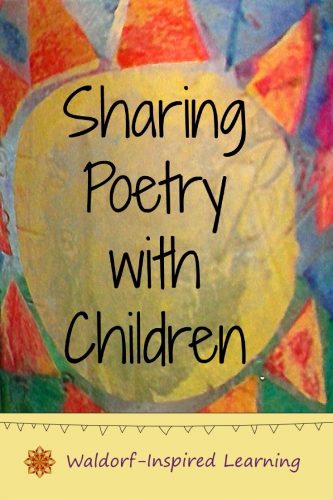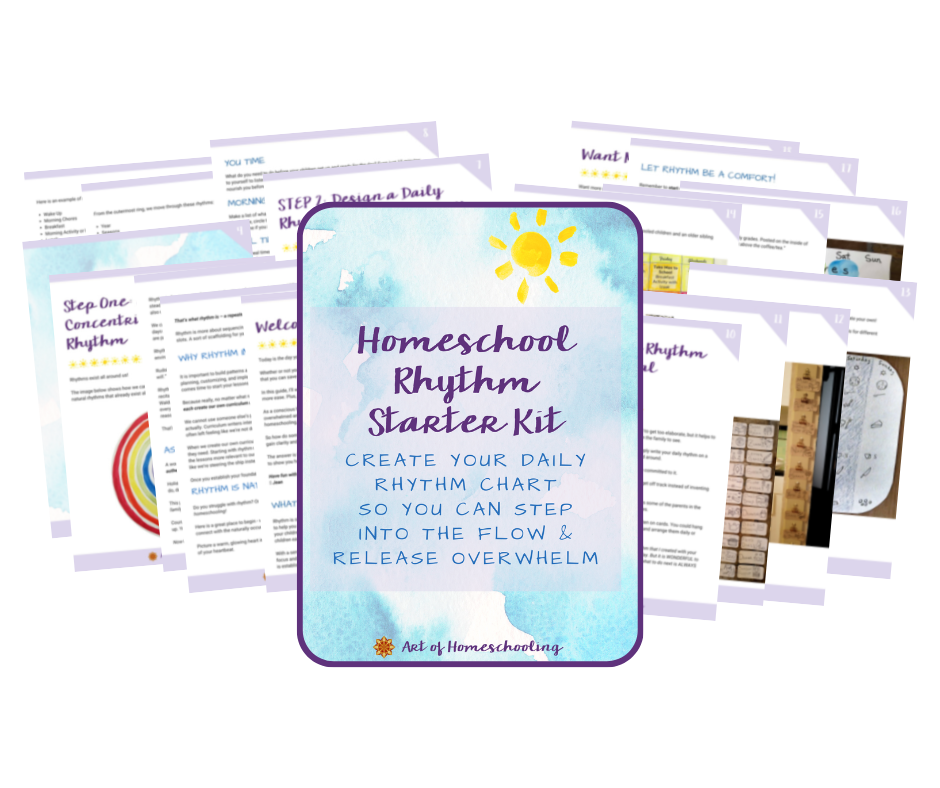What is it about poetry that draws us in? Perhaps it’s the sparse words and pictures those words paint, just incomplete enough for us to add a bit of our own. The earliest literature in every culture was in verse form, often heavily rhymed to aid the memory and oral transmission from one generation to the next.

Research shows that children who are exposed to rhyme, alliteration (beginning sounds) and phonics (single vocal sounds) at an early age (such as ages 4 to 5) develop reading skills more quickly and effectively three years later. That’s why the early childhood years in Waldorf education are full of rhymes and poems to lay a strong foundation for literacy. And poetry continues to play a part in all the lessons all the way through high school.
Summer is a great time begin collecting your favorite poems for your homeschooling next year. I have used different organizational methods for this process, starting off with the good old index cards in a box. I’ve also used file folders just to toss poems in, and now I have seasonal binders. Make a section for each season, another for morning warm-up time, and one for mealtime blessings and bedtime.
If you start collecting and memorizing some poems now, you’ll be all set come fall. Once lessons begin, recite verses every day, and learn one new poem by heart each week with your children.
Below are my favorite starting resources for poems and verses.
These are affiliate links. You can read my full Disclosure Policy here.
In his 1923 lecture, The Child’s Changing Consciousness As the Basis of Pedagogical Practice, Rudolf Steiner said:
“Poetry is conceived only through a solitary soul; but it is comprehended through human community. It is entirely concrete – not at all abstract – to assert that a person’s inner being is revealed through the poetry created, and that this is met by the deepest inner being of another human being who takes in that created work. Consequently, a delight in music and poetry, as well as a yearning for them, should be encouraged in the growing child.”
A few other tips for you. Have you ever tried writing Found Poetry with your children? You can read about it here: Writing Found Poetry with Children.
Do you know about Poetry Teatime? It’s a lovely practice to introduce into your homeschool. You can read more about it here on the Brave Writer blog.
Looking for more inspiration? Check out my Pinterest board on Verses.
You can find more ideas and inspiration in my article, The Seven Lively Arts.



Wonderful advice! Boy, my bank account is taking a hit this week from book orders. 😉 But it’s money I’m happy to spend. Thanks, Jean!
You’ll be so glad, come fall!
Don’t forget to use your interlibrary loan service on the internet. And the great volume of wonderful literature already on line. Start with mainlesson.com You can save a lot of $$$$$